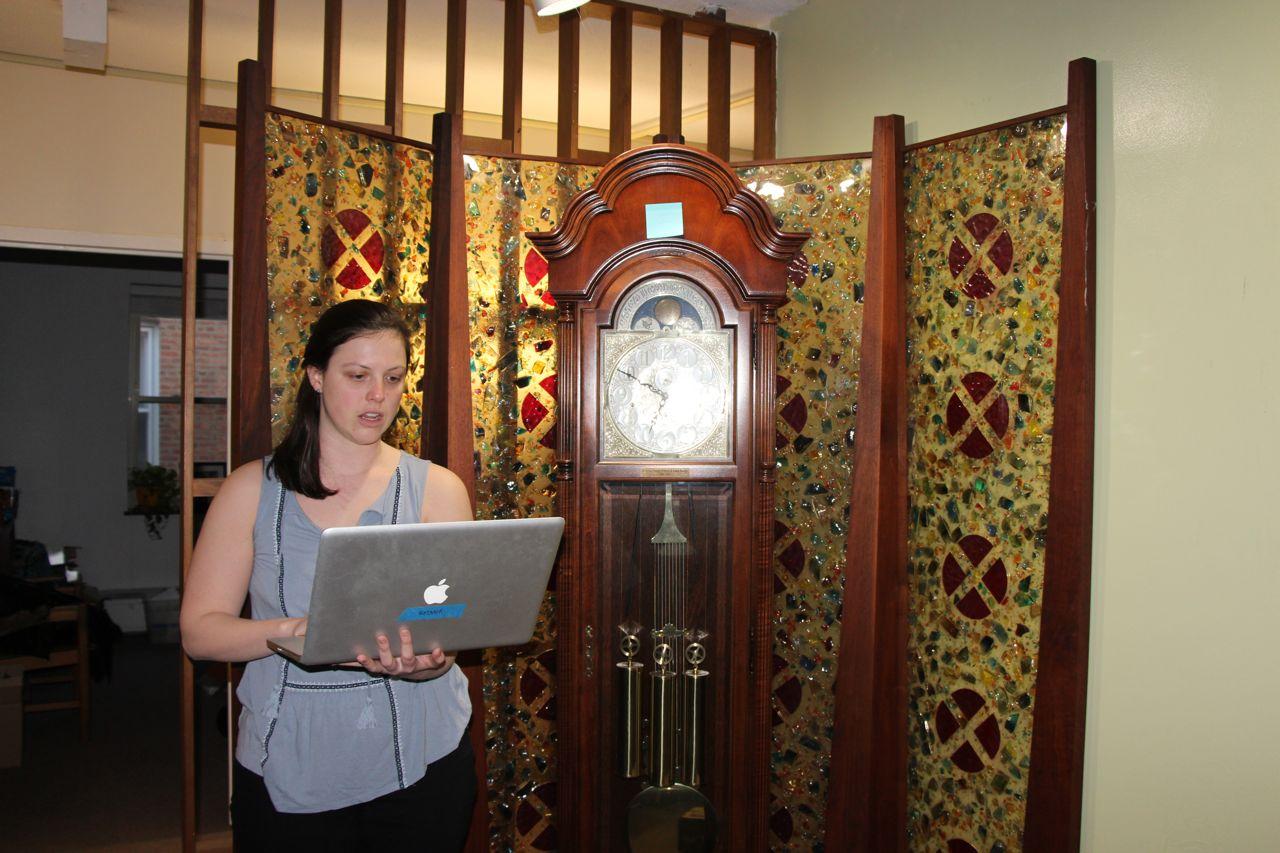THE SECOND STATION: JESUS CARRIES HIS CROSS
During Holy Week, we will be featuring reflections by our fellows centered around the Stations of the Cross, which commemorates the Passion of Jesus.
Today, we share a reflection by Emma Stiver on the Second Station: Jesus Carries His Cross. Emma is working at Girls in the Game and she shared her story at Amate House’s Stations of the Cross evening of reflection on March 21, 2018.

Jesus is made to carry the cross on which he will die. It represents the weight of all our crosses. What he must have felt as he first took it upon his shoulders! With each step he enters more deeply into our human experience. He walks in the path of human misery and suffering, and experiences its crushing weight.
What first came to mind after initially reading this station was the weight of the cross that Jesus had to carry. Based on the size generally depicted, one could guess it weighed about 125 pounds. The cross rested on his shoulder, neck, and back where the large, substantial beams met. The large amount of weight and pressure of the cross probably chafed and tore Jesus’s skin and obviously caused him an immense amount of pain. It’s pretty grim to think about.
This led me to consider what kind of crosses those I encounter bear. At the point in Jesus’s journey where he accepts his cross, he is already bruised, battered, and tired. There are days that I feel very much this description. Coming home after a long, emotionally and mentally exhausting afternoon coaching at an after school site where middle school girls bully their friends and make another girl feel unwelcome can make me feel bruised and burnt out. And I’m sure all of you have days where you feel this as well. So, why accept to bare the cross at all? Why did Jesus choose to carry our suffering and misery?
As Teen Programs Coordinator at Girls in the Game I facilitate conversations, activities, games, discussions, and sometimes dance competitions at three high schools three days a week. During the second day of programming at Collins Academy, which neighbors my office at Douglas Park, we did an activity called “What do we want for girls.” My co-coaches and I asked our group of junior girls three questions and then we gave them time to reflect and then share their answers. These were the questions:
1. Who is a role model in your life and what did they help you learn about yourself?
2. Think of the women in your life and what do you want for them?
3. What do you want to pass on to younger girls?
I’ll give y’all a moment to think about it for yourselves….
Usually, I run this activity by giving the group time to think, write each of their answers, and then share. But the girls decided they wanted to answer the questions one at a time out loud. To ruin the story: we only got through the first question during our 40 minutes together. Each girl took a turn sharing who their role models were and what they helped them learn.
The story that stuck me the most was shared by Twanisha. Twanisha is a generally spunky, kind, and hard-working 17 year old who is the mother of a two year old son. She went on to share that when she was pregnant with her son her family continually told her that she wouldn’t be able to finish school and no longer had a future because she would have a child to take care of. Anytime she was upset about the potential future of her life and shared her fears with her family, they would tell her to suck it up because it was her fault that she got pregnant and to face the consequences.
Her only supportive family member and role model was her older cousin Zariya, who was raising a child of her own and commuting back and forth between the University of Michigan and Chicago while also finishing her degree. Twanisha told her friends and us coaches that Zariya always told her during her pregnancy that her life was not decided for her; that she could finish high school and go to college even while raising a baby. She just had to believe in herself and not listen to people trying to tear her down.
There was obviously not a dry eye in the room after hearing Twanisha’s story. We all got up from our seats and hugged her. The other girls in the room told her they would continue to support and love her. This moment at programming is one I will carry for a long time. I was so moved by her story, yet I can’t fully understand because I’ve never experienced it. The best I could do in the situation was acknowledge her story, thank her for sharing it, and tell her that I’ve never experienced anything like it, but how difficult it must be.
My cross is different than each of those juniors as well as each teen I interact and connect with. But, like Jesus, it is still my job to take up my cross even when I’m burnt out, bruised, and battered. To decide to take up my cross is to persevere and try to live a life of compassion, empathy, and love.

